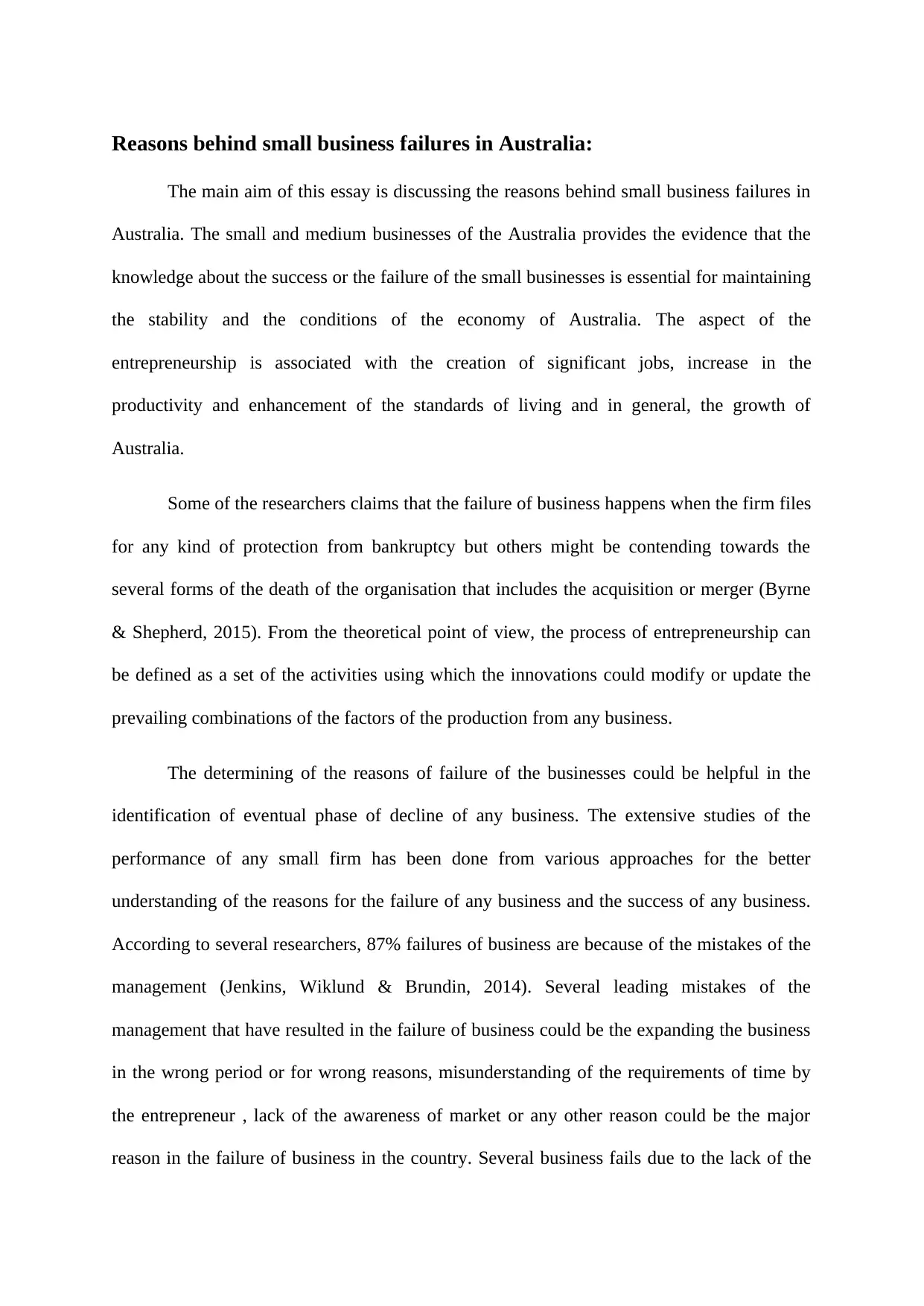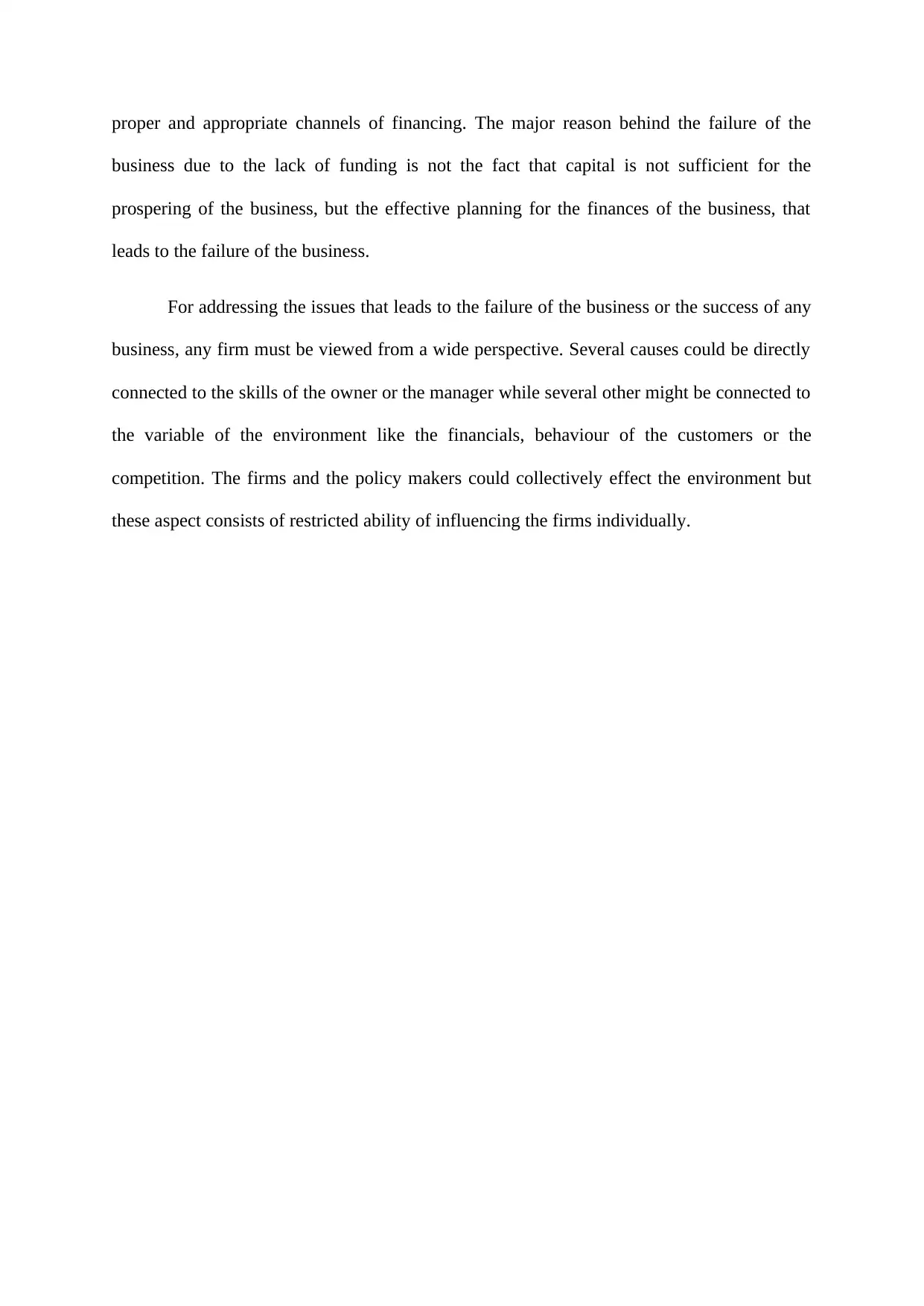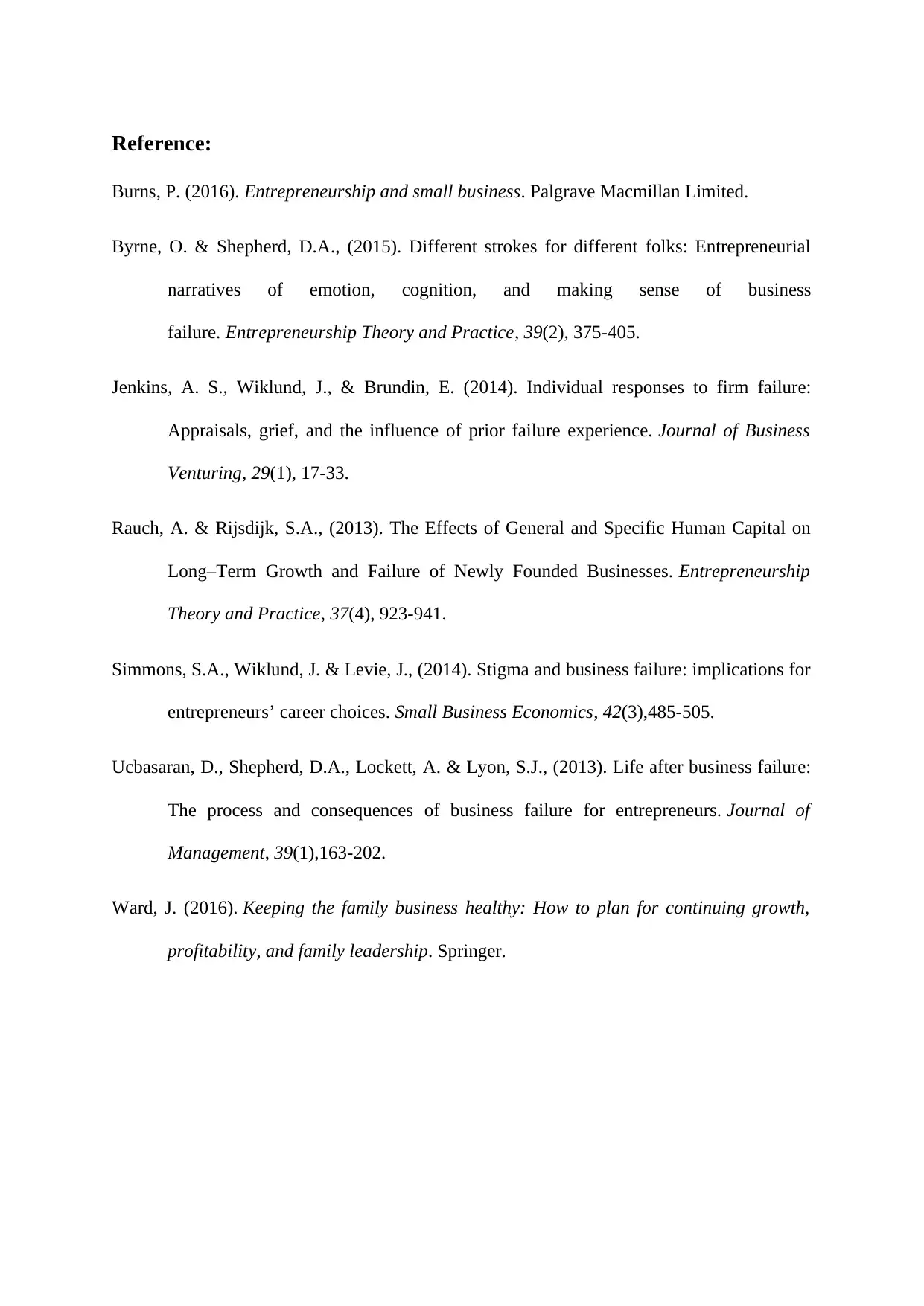Understanding the Reasons Behind Small Business Failures in Australia
VerifiedAdded on 2023/04/19
|4
|802
|152
Essay
AI Summary
This essay examines the primary reasons for small business failures in Australia, emphasizing the critical role of small and medium-sized enterprises in maintaining economic stability. It highlights that entrepreneurial activities significantly contribute to job creation, productivity, and overall living standards. The essay identifies management mistakes, such as expanding at the wrong time or lacking market awareness, as major factors in business failures, often accounting for a significant percentage of such cases. Additionally, it discusses how inadequate financial planning and lack of appropriate funding channels contribute to these failures. The essay also points out that a comprehensive understanding of both internal factors, like the owner's skills, and external variables, such as financial conditions and customer behavior, is essential for addressing and preventing business decline. It references several studies that underscore the importance of these factors in determining the success or failure of small businesses.
1 out of 4











![[object Object]](/_next/static/media/star-bottom.7253800d.svg)